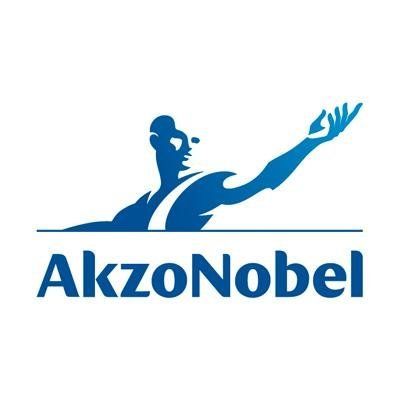预约演示
更新于:2026-01-31
CERM-11956
更新于:2026-01-31
概要
基本信息
原研机构 |
在研机构- |
非在研机构 |
权益机构- |
最高研发阶段终止临床1期 |
首次获批日期- |
最高研发阶段(中国)- |
特殊审评- |
登录后查看时间轴
结构/序列
分子式C29H38N2O7 |
InChIKeyAZZVBCJRSYUICI-WLHGVMLRSA-N |
CAS号97631-49-7 |
关联
100 项与 CERM-11956 相关的临床结果
登录后查看更多信息
100 项与 CERM-11956 相关的转化医学
登录后查看更多信息
100 项与 CERM-11956 相关的专利(医药)
登录后查看更多信息
3
项与 CERM-11956 相关的文献(医药)1991-05-01·Naunyn-Schmiedeberg's archives of pharmacology4区 · 医学
The influence of calcium antagonists on the adenine nucleotide metabolism in the guinea-pig working heart during ischaemia and reperfusion
4区 · 医学
Article
作者: P A van Zwieten ; N de Haan ; J G Hugtenburg ; J J Beckeringh ; M J Mathy
With the aim of gaining more insight into the metabolism of adenine nucleotides in working normoxic guinea-pigs and in hearts subjected to 45 min of global ischaemia and subsequent reperfusion for 25 min, we evaluated the effect of nifedipine, verapamil, diltiazem, bepridil, CERM 11956, lidoflazine, mioflazine and dipyridamole on the adenine nucleotide catabolite levels in these hearts. The drugs were applied at the concentrations that reduced the aortic dP/dt of normoxic working hearts by 10% (EC10) and 30% (EC30). In globally ischaemic hearts there was a large accumulation of adenine nucleotide catabolites. Inosine proved to be the major catabolite. The drugs, with the exception of bepridil, CERM 11956 and dipyridamole (3 mumol/l), decreased the accumulation of catabolites. In hearts treated with mioflazine and dipyridamole the amount of adenosine increased. A deficit in the balance between adenine nucleotides and catabolites indicated that in globally ischaemic hearts there was a large accumulation of inosine monophosphate. Indeed, a substantial amount of inosine monophosphate was determined in untreated hearts, and hearts treated with nifedipine (EC30) and mioflazine (EC10). During the first 5 min of reperfusion a large quantity of catabolites, mainly inosine, was washed out. During 20 min of subsequent reperfusion in untreated hearts and in nifedipine and mioflazine-treated hearts the efflux of catabolites returned to normoxic values. Similar to the effect in ischaemic hearts, in early perfusate from lidoflazine, mioflazine and dipyridamole-treated hearts the adenosine/inosine ratio was increased.(ABSTRACT TRUNCATED AT 250 WORDS)
1989-07-01·Naunyn-Schmiedeberg's archives of pharmacology4区 · 医学
A comparison of the cardioprotective effects of calcium antagonists from different classes upon ischaemic damage in the guinea-pig working heart
4区 · 医学
Article
作者: Boddeke, H. W. G. M. ; Mathy, M. J. ; Van Zwieten, P. A. ; Veldsema-Currie, R. D. ; Beckeringh, J. J. ; Hugtenburg, J. G.
The cardioprotective effects of nifedipine, verapamil, diltiazem, bepridil, CERM 11956, lidoflazine, mioflazine and the coronary vasodilator dipyridamole were evaluated in the guinea-pig working heart with respect to cardiac function and high energy phosphate content after 45 min of global ischaemia and 25 min of reperfusion. All drugs, with the exception of dipyridamole, induced a negative inotropic effect, which resulted in a decrease of the aortic pressure (AoP), of its first derivative dAoP/dt and the cardiac output. To compare the anti-ischaemic effect of the calcium antagonists, concentrations were selected that reduced the dAoP/dt by 10% (EC10) and 30% (EC30), respectively. With the exception of nifedipine at the EC10 and bepridil and CERM 11956 at the EC30, perfusion with the calcium antagonists and dipyridamole (3 mumol/l) improved the recovery of contractile function after global ischaemia and reperfusion to a value between 60 and 80% of the controls in normoxic hearts. Pretreatment with nifedipine, verapamil, diltiazem, lidoflazine and mioflazine, but not with bepridil, CERM 11956 and dipyridamole led to slightly increased ATP levels in ischaemic hearts as compared to the control value in ischaemic hearts. After subsequent reperfusion for 25 min, for all drugs, ATP levels were further enhanced to 50% of the level in normoxic hearts; phosphocreatine levels reached normoxic values. In particular at the EC30, the effects of calcium antagonists on cardiac function varied in accordance with their known pharmacological and physiological profile. However, there appeared to exist no direct relationship between their beneficial effects on contractile activity and those on the levels of high energy phosphates after ischaemia and reperfusion.
1988-05-01·European journal of pharmacology3区 · 医学
The anti-ischaemic activity of the novel compound, CERM 11956, compared with that of bepridil and nifedipine in isolated guinea-pig hearts
3区 · 医学
Article
作者: Pieter A. Van Zwieten ; Robin D. Veldsema-Currie ; Erik W.G.M. Boddeke ; Walther T.J. Jap ; Jacqueline G. Hugtenburg ; Bob Wilffert ; Jaap B. Heynis
A comparison between the protective activity of bepridil, its novel derivative, CERM 11956, and nifedipine in isolated electrically paced guinea-pig hearts after 60 min of global ischaemia followed by 30 min of reperfusion has been made. All three compounds exerted a significant anti-ischaemic effect, as indicated by an improved recovery of functional parameters (left ventricular pressure and coronary perfusion), a delayed onset of the ischaemic contracture, and an enhanced recovery of biochemical (CrP, ATP and adenylate energy charge) parameters. The most pronounced anti-ischaemic activity was shown by the compound CERM 11956 at concentrations that displayed only minor negative inotropic activity. From the results it may be concluded that the new bepridil derivative, CERM 11956, is a promising and potent anti-ischaemic compound, which has little influence on haemodynamic parameters.
100 项与 CERM-11956 相关的药物交易
登录后查看更多信息
研发状态
10 条进展最快的记录, 后查看更多信息
登录
| 适应症 | 最高研发状态 | 国家/地区 | 公司 | 日期 |
|---|---|---|---|---|
| 心肌缺血 | 临床1期 | 法国 | - | - |
| 心肌缺血 | 临床1期 | 荷兰 | - |
登录后查看更多信息
临床结果
临床结果
适应症
分期
评价
查看全部结果
| 研究 | 分期 | 人群特征 | 评价人数 | 分组 | 结果 | 评价 | 发布日期 |
|---|
No Data | |||||||
登录后查看更多信息
转化医学
使用我们的转化医学数据加速您的研究。
登录
或

药物交易
使用我们的药物交易数据加速您的研究。
登录
或

核心专利
使用我们的核心专利数据促进您的研究。
登录
或

临床分析
紧跟全球注册中心的最新临床试验。
登录
或

批准
利用最新的监管批准信息加速您的研究。
登录
或

特殊审评
只需点击几下即可了解关键药物信息。
登录
或

生物医药百科问答
全新生物医药AI Agent 覆盖科研全链路,让突破性发现快人一步
立即开始免费试用!
智慧芽新药情报库是智慧芽专为生命科学人士构建的基于AI的创新药情报平台,助您全方位提升您的研发与决策效率。
立即开始数据试用!
智慧芽新药库数据也通过智慧芽数据服务平台,以API或者数据包形式对外开放,助您更加充分利用智慧芽新药情报信息。
生物序列数据库
生物药研发创新
免费使用
化学结构数据库
小分子化药研发创新
免费使用
